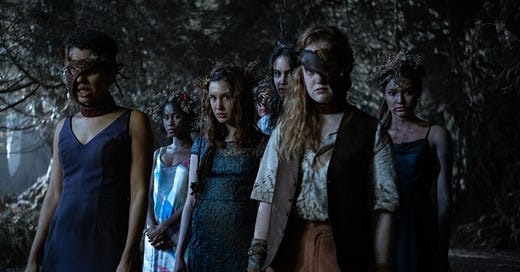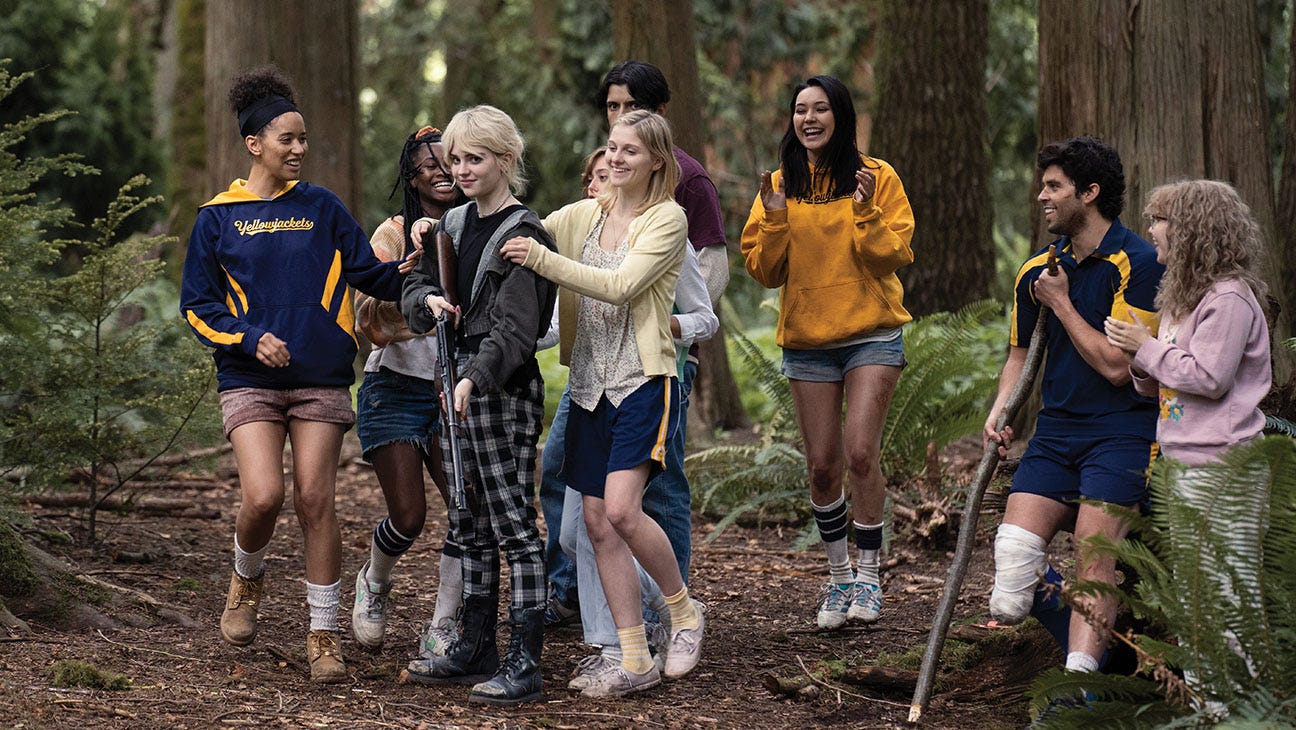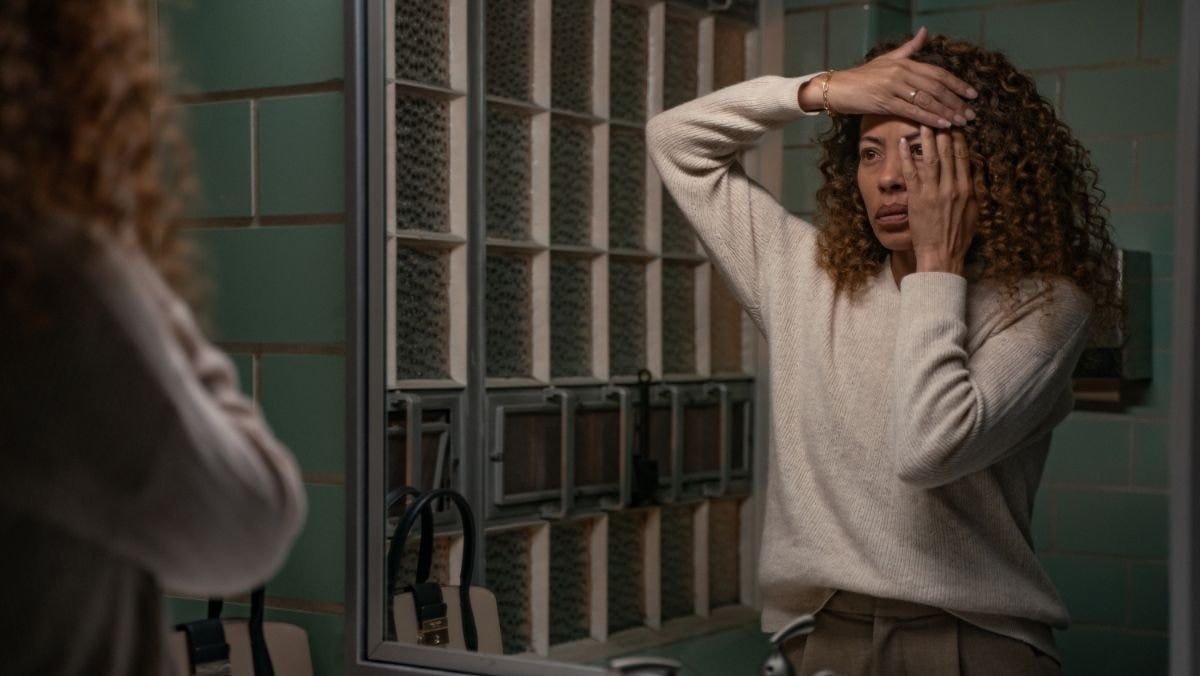Spoilers Ahead
I’ve been a bit. . . obsessed lately. Netflix recently added the first season of hit series Yellowjackets to their streaming service. It was a show I’d always intended on watching, but I didn’t have the platform to stream it, so I was just biding my time until I did. I began the show almost blind, all I knew was that it was about a girls soccer team that got stranded in the woods. I was so deeply unprepared for the wildness I was about the experience.
Let me say first and foremost: Yellowjackets is incredible. It is a mastery of storytelling and a beautiful piece of art in itself. It’s really good, even outside of my own biases for the show. One of the many beautiful things about it is the inherent queerness in the show. Yellowjackets tackles queerness in a way that is real. There is much in the show that forces one to step outside of their own perception of reality and enter someone else’s for a bit, and in that way Yellowjackets insists that the viewer sees queer people as they are.
There are three, at the moment, canon queer characters in the show. The coach, Coach Ben, Taissa (or Tai), and Vanessa (or Van). Coach Ben has his own arc of dealing with his sexuality in terms of a series of flashbacks in season 2. In these flashbacks he sees the future he could’ve had if he had accepted himself as queer, instead of avoiding it. He comes out to the girls in the midst of them being stranded in the woods, and in many ways finds that his identity as a queer man does not change who he is at all. He remains their beloved coach and trusted adult of the group.
Tai and Van, however, are in a secret relationship at the top of the show. The show alternates between 1996, when the plane crash happened and the girls become stranded, and 2021, as the survivors are full adults attempting to live their lives. In 1996, Tai and Van are fearful of the potential backlash of them being in a lesbian relationship, however, in 2021, Tai is married to a different woman and running for public office. Seeing the juxtaposition in Tai’s two relationships was very meaningful to me and masterfully done.
Tai and Van, as we see them in 1996, are a unit. Their relationship isn’t necessarily perfect, but there’s a sense of carefree-ness to it. They are able to laugh together and be there for each other. In the wilderness, away from society, they are allowed to fully be themselves. They are allowed to be teenage girls and in this relationship and see what it is like to feel at home and safe within themselves. In 2021, Tai is burdened by the views of society and adulthood. She has pushed herself into this sense of being a “responsible” adult and in many ways has suffered for it. While she might now be openly queer, she is still fighting for perceived normalcy, which is something she can only achieve through other’s eyes.
The rest of the girls are not canonical queer (Yet! A girl can dream!) however that does not mean that they do not have a sense of queerness to them. These girls, like many teenage girls, have a profound closeness to each other. Physical and emotional boundaries with each other are simply not things that are taught in our society to teenage girls. It is ingrained in womanhood to form a sense of a pack, to go places in groups and to rely on community. This is reflected in Yellowjackets, as the girls share a bond unlike any other. The lines between sapphic identity and womanhood blur heavily, and Yellowjackets shows it in its honest and raw form. Season three will be released in early 2025, I highly encourage you to check it out.
About the Author
Mya Tran is an incoming junior at Butler University, in Indianapolis, IN. They are currently studying English on the creative writing track and German. Growing up in a small college town with limited queer role models, Tran has spent her life with her nose in the books, looking for someone to relate to.







